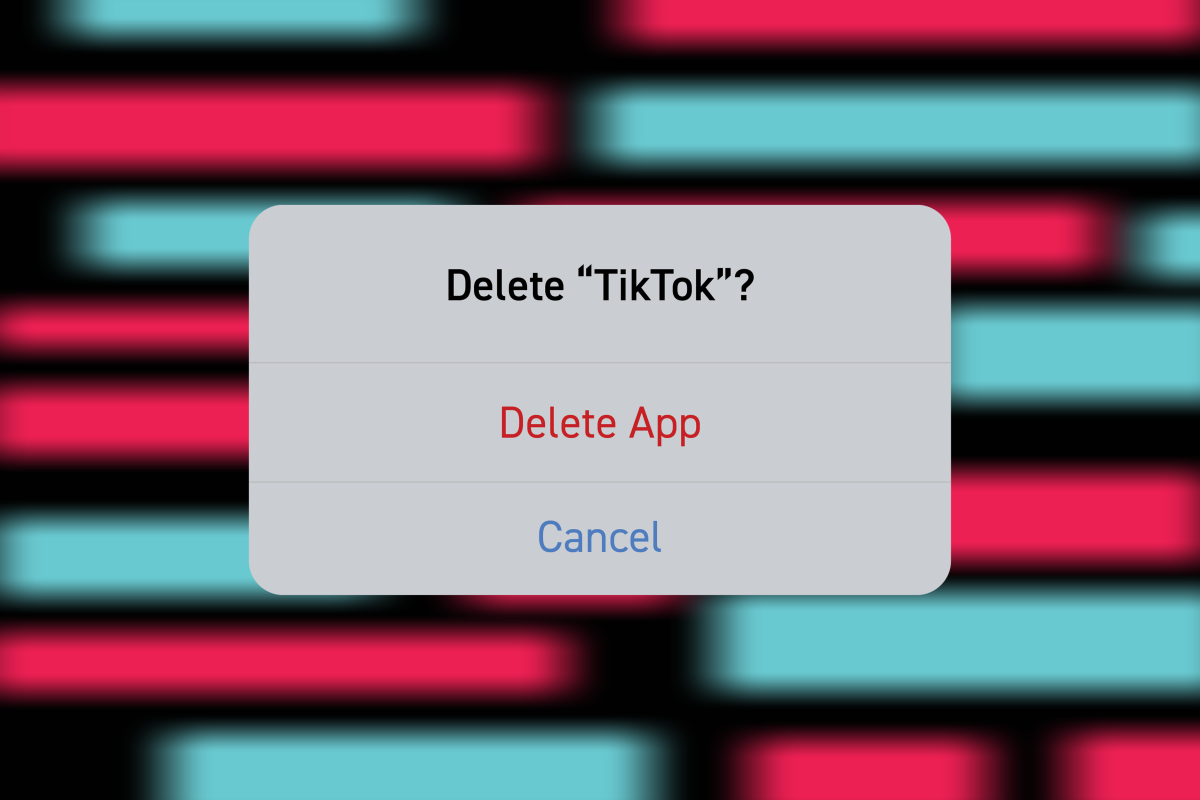Editor’s note: Since this story was written, the TikTok ban-or-sell bill was passed in the Senate and signed into law by President Joe Biden. In May, TikTok and ByteDance, its parent company, sued the U.S. government claiming the law was unconstitutional.
On March 13, the House of Representatives passed legislation forcing a nationwide TikTok ban unless its owners, a China-based company known as ByteDance, sell to an American company within six months of the bill’s passing. The bill, also known as the Protecting Americans from Foreign Adversary Controlled Applications Act, passed with support from both Democrats and Republicans after national security concerns were raised over ByteDance and its relation to the Chinese government.
Since then, conversations about what this means and how to stop the ban are all at the forefront of many TikTok users’ minds. Burnt X Orange created a simplified explanation of the current situation to clarify what exactly is happening and what the future of TikTok looks like.
Why was the bill created?
Lawmakers created the bill out of national security concerns raised by the Chinese government, which has access to TikTok’s algorithm. According to FBI Director Chris Wray during a talk he gave at the University of Michigan, the government could use the app to manipulate and influence content for its benefit. Furthermore, according to Axios, U.S. users’ data could potentially be at risk due to Chinese law that requires Chinese companies to share information with the government.
On the other hand, it’s important to note that lawmakers have yet to provide evidence that the Chinese Communist Party has used TikTok against American interests, according to NPR. Additionally, if TikTok is banned due to national security risks, there are other ways China could collect U.S. data. For example, simply visiting a hotel owned by a Chinese company could give China access to your data. According to CBS News, the Chinese government can also gather data from Chinese-owned Wi-Fi Connections.
What happens next?
The bill received 352 assenting votes and 65 dissenting votes in the House, moving it onto the Senate. However, it may take the Senate a while to vote on the legislation, according to the New York Times. Many senators already have their own similar versions of this bill, and would potentially want to rewrite the House bill to accommodate their ideas. Because of this, U.S. TikTok users could be stuck waiting a while for the Senate to edit the bill before a vote occurs.
How long has TikTok been a concern in the U.S.?
While this bill just passed, the idea of banning TikTok in the U.S. has been around for several years. In 2020, former President Donald Trump created an executive order prohibiting TikTok unless sold to an American company, according to Axios. TikTok agreed to work with Oracle, a database management company. This collaboration, known as Project Texas, aimed to increase users’ trust in the U.S. government and ensure their safety on the app. As part of the project, TikTok transferred U.S. user data to U.S. servers inside Oracle’s cloud database to ensure American data wasn’t going through Chinese servers, according to Texas Standard. In February 2023, the Biden administration banned TikTok from federal devices and Montana Governor Greg Gianforte imposed a total ban on the app. However, the statewide ban in Montana was blocked by a federal judge in November before the law could take effect.
What will happen if the Senate passes the bill?
If the bill passes in the Senate, it moves to the president. When asked about the bill, President Biden said, “If they pass it, I’ll sign it,” according to AP. Once signed, TikTok has 180 days to sell its U.S. operations to an American company, which comes with many challenges. First, TikTok’s U.S. revenue reached $16 billion in 2023, and over 170 million Americans use the app, according to Reuters. This level of popularity limits the number of American companies that can afford to pay the presumably large price the app will have.
Additionally, even if an American company ends up purchasing TikTok, it doesn’t guarantee that the lifeblood of TikTok, the algorithm, will be available for the U.S. company to use. The TikTok algorithm that caters to each user’s preferences isn’t owned by TikTok, but by ByteDance, according to The New York Times. The Chinese government would review any license that allows other companies to use ByteDance’s algorithm, and it’s unlikely they would give their codes away to an American competitor. This means although the option of an American company purchasing the U.S. operations is available for TikTok, the quality of the app would be vastly different than what users are used to.
If the bill passes and TikTok isn’t sold to an American company, app stores would be penalized if they distributed or updated the app. For the millions of Americans who already have TikTok installed, the app’s quality would slowly decrease as the app would stop receiving updates.
What is TikTok doing now?
Since the bill passed in the House, TikTok has spent at least $3.1 million on advertising for the month of April, according to The New York Times. Their advertisements are a part of the TikTok Sparks Good campaign, which aims to shed light on the positive nature of TikTok. They feature real TikTok users who have created a following and highlight how TikTok has helped them, whether that’s through creating a community or improving sales for small businesses.
It’s too early to tell if these measures will help save TikTok in the U.S. The process of revising and then voting on the bill could drag this issue on for weeks or months. Until the Senate brings the bill to a vote, the future of TikTok remains unknown.
































